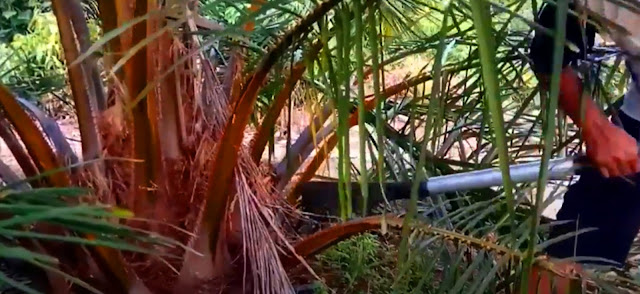Definition of castration
Castration or there is also a mention of ablation, which is an activity of removing sand fruit on oil palm plants with the aim of suppressing generative growth and stimulating vegetative growth.
Benefits or function of castration
The benefits of castration on oil palm plants are: Castration to stimulate vegetative growth, castration to save the use of nutrients and water, castration reduces the risk of Tirathaba and marasmus fungi and castration functions so that at the first harvest the bunch size is bigger, heavier and perfect.
Sprouting is an activity to cut old or unproductive leaf midribs and enter castration. Sprouting aims to facilitate harvesting, observation of ripe fruit, natural pollination, light entry and wind circulation, preventing loose fruit from getting stuck in the midrib, sanitizing and distributing nutrients to other, more productive parts.

